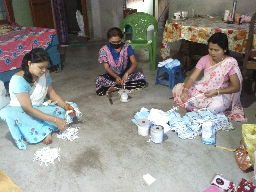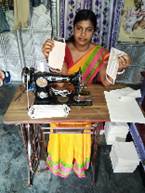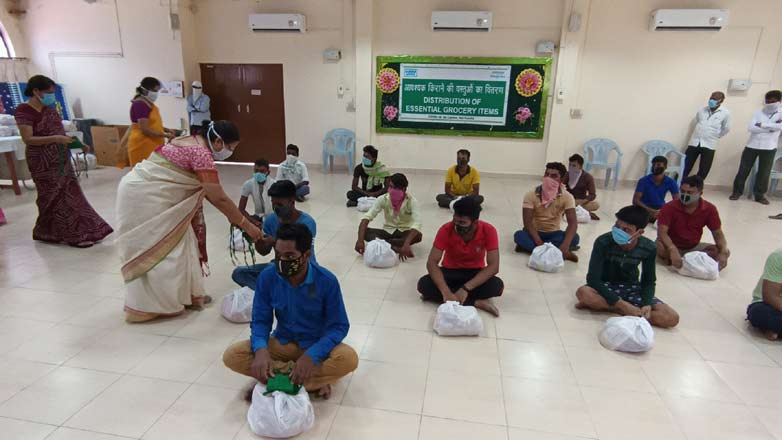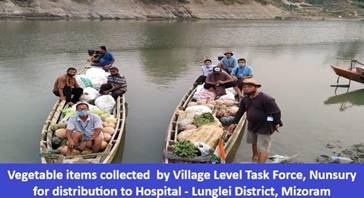Ministry of Panchayati Raj
Local administrations in all parts of the country continue taking initiatives to help the public during the situation arising from COVID-19
Various initiatives include setting up control rooms for helping stranded people, tracing travel routes and contact persons of those in quarantine and those who crossed borders including lorry drivers, mitigating doubts; prescribing procedures for handling, treatment and disposal of bio-medical waste; and making arrangements for purchasing and selling of farm produce
Posted On:
03 MAY 2020 8:14PM by PIB Delhi
Local administrations at the State, district and panchayat levels all across the country are continuing to take various initiatives to check the spread of the COVID-19 pandemic. Ministry of Panchayati Raj, Government of India remains in close coordination with State Governments, District authorities and Gram Panchayats to ensure that lockdown conditions are not violated and norms of social distancing are scrupulously followed.
Various initiatives which may be followed by others as examples of best practices are –
Andhra Pradesh:
Andhra Pradesh government has set up a control room for helping stranded people. Andhra people who are stranded in other states can call 0866-2424680 and other states’ people stranded in Andhra can call 1902 and give their details, to get help to go to their places. Similarly, permissions have been given to 1655 industries located in the green zone and they have started operations. Migrant labourers are permitted to go from one green zone to another green zone and work with adequate precautions.

Assam: About 5 SHGs comprising of 17 members are producing masks in the Tarapur Gram Panchayat of Silchar Block in Cachar District.


Kerala:
40 NSS volunteers are taking turns to work at the District Medical Office on the Collectorate premises, tracing primary and secondary contacts of all the people who came to the district from other countries and states since the COVID-19 outbreak. The Control Cell monitors those in quarantine, the lorry drivers who have been transporting goods from other states and those who crossed the borders with a special pass. Apart from tracing their travel routes and contact persons, these volunteers double up as helpline service staff, mitigating doubts, confusion and panic of the callers. The volunteers wear masks and use sanitizers while practising safety measures at the cell. All of them sanitise themselves and their phones before entering their homes. After the day’s work, they attend classes online to continue their academics.

Telangana:
- Telangana State Pollution Control Board (TSPCB) has requested general public, urban local bodies, health care establishments (HCFs) and common bio-medical waste management facilities to follow specific procedure/ guidelines for handling, collection, transportation, treatment and disposal of bio-medical waste generated from Covid-19 patients/suspected persons. They have been told to keep separate colour coded bins/ bags/ containers in wards and maintain proper segregation of waste as per BMWM Rules, 2016 and CPCB guidelines. As a precaution, double layered bags (2 bags) should be used for collection of waste from Covid-19 isolation wards to ensure adequate strength and no leaks.

- Deepti Mahila Samithi, ladies club of National Thermal Power Corporation, Ramagundam, distributed 5,000 cotton masks to employees and contract workers. Significantly, the masks were stitched by the volunteer members of the ladies club as well as women of nearby villages, who received tailoring training.

Mizoram:
The village residents in Mizoram depend largely on farming activities and other labour work. The current situation has led to decline in daily livelihood and income. The local bodies have taken the lead in providing sustenance through equitable free distribution of basic nutritional requirements such as rice, dal, potatoes, etc., besides regular ration provided by the government free of cost. The local bodies have also permitted the villagers to work on their farmlands with an instruction to maintain social distancing under certain conditions. Also, the local bodies made necessary arrangements for collecting, purchasing and selling of the farm produce to the state capital.

*****
APS/SG/PK
(Release ID: 1620741)
Visitor Counter : 1117